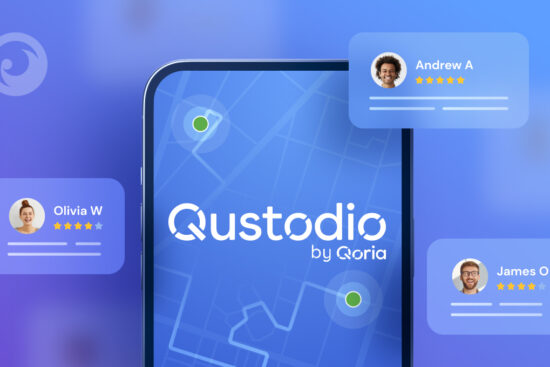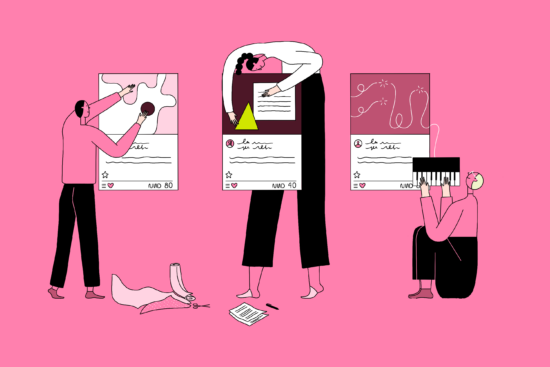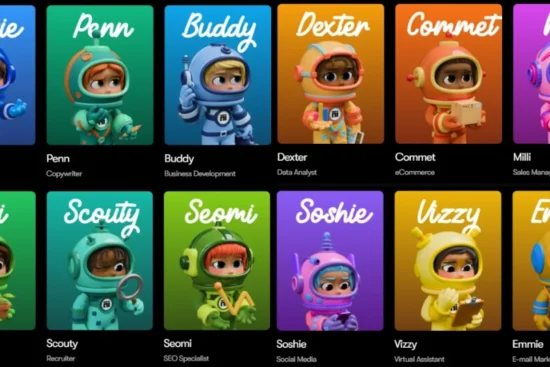
As artificial intelligence continues its relentless march forward, the year 2025 promises a surge of innovative gadgets that redefine how we live, work, and play. AI is no longer confined to research labs and sci-fi imaginings; it’s embedded in our everyday lives, powering devices that enhance convenience, safety, and productivity. From smart homes to healthcare, AI is the driving force behind some of the most groundbreaking technologies of the decade. Here’s a look at the AI-powered gadgets set to make waves in 2025.
1. AI-Enhanced Smart Home Devices
Smart homes are becoming smarter than ever, thanks to advancements in AI. In 2025, these devices are predicted to move beyond basic automation to deliver truly intuitive experiences.
a. Predictive Virtual Assistants
Virtual assistants like Alexa and Google Assistant are evolving into proactive entities capable of learning your habits and preferences. They’ll anticipate needs before you even voice them—reminding you to buy groceries when your fridge detects low stock, or suggesting ways to optimize your energy usage based on real-time data.
b. AI-Powered Appliances
Expect appliances that do much more than their traditional roles. Refrigerators equipped with AI can suggest recipes based on available ingredients, while washing machines can adjust cycles based on fabric types and stains detected by built-in sensors.
c. Smart Security Systems
AI will enhance home security by introducing advanced facial recognition, anomaly detection, and real-time threat analysis. Smart cameras and alarms will distinguish between harmless activities—like your pet roaming the house—and potential intrusions.
2. Wearable Technology: Smarter and More Personalized
Wearable gadgets are set to become indispensable companions in 2025. Powered by AI, these devices are evolving into tools that monitor, predict, and even intervene in real-time.
a. Health Monitoring on Steroids
Wearables will monitor more than just steps and heart rates. AI-driven health devices will detect early signs of illnesses, analyze sleep patterns with clinical accuracy, and monitor chronic conditions like diabetes by integrating with biosensors.
b. Personalized Fitness Coaching
Fitness wearables equipped with AI will serve as personal trainers, creating tailored workout plans, offering real-time feedback, and adapting recommendations based on user progress.
c. Smart Glasses for Enhanced Reality
AI-powered smart glasses will combine augmented reality (AR) with real-time data processing. They’ll provide everything from real-time language translation during conversations to detailed navigation overlays on the go.
3. Revolutionizing Mobility with AI
Transportation is one of the sectors most profoundly impacted by AI advancements. By 2025, we’ll see smarter and safer ways to get from point A to B.
a. Autonomous Vehicles
Self-driving cars will become more commonplace, with AI ensuring safer roads through advanced object detection, predictive analytics, and real-time adaptation to traffic conditions. AI-powered ride-sharing services will also increase efficiency by optimizing routes and matching passengers intelligently.
b. AI-Enhanced Public Transit
Public transportation will benefit from AI’s ability to optimize schedules, predict passenger flow, and reduce delays. Commuters will enjoy seamless integration of various modes of transport, from buses to trains, managed by AI platforms.
c. Personal Mobility Gadgets
E-scooters, bikes, and other personal transportation devices will feature AI to improve safety and navigation. These gadgets will learn rider preferences, suggest optimal routes, and even detect maintenance needs.
4. AI in Healthcare Devices
The convergence of AI and healthcare is set to revolutionize the way medical devices operate, making them smarter, more efficient, and user-friendly.
a. At-Home Diagnostic Tools
Devices capable of AI-powered diagnostics will empower users to monitor their health from home. Smart thermometers, blood pressure monitors, and even devices that conduct basic blood tests will offer accurate readings and actionable insights.
b. AI-Driven Wearable Health Monitors
Wearables like smartwatches and bands will act as early-warning systems for critical conditions like heart attacks or strokes. Using AI, these devices can analyze patterns in your vitals and alert you or your physician about potential issues.
c. AI-Powered Prosthetics
Prosthetic limbs integrated with AI will become more responsive and adaptive, enabling users to perform complex movements with ease. These devices will leverage machine learning to learn and mimic natural limb behavior.
5. The Future of Entertainment
AI is also reshaping how we experience entertainment, with gadgets that provide personalized and immersive content like never before.
a. Smart Audio Devices
AI-powered speakers and headphones will adapt sound profiles to individual user preferences, offering immersive audio experiences tailored to different activities—be it gaming, movies, or relaxation.
b. AI in Gaming
Gaming devices will feature adaptive AI, creating dynamic gameplay experiences. AI opponents will learn from player strategies, while virtual reality (VR) headsets will deliver highly personalized and responsive gaming environments.
c. Personalized Streaming Experiences
Streaming gadgets equipped with AI will refine recommendations to an unprecedented degree, curating playlists and shows based on mood, time of day, and viewing history.
6. The Rise of AI-Driven Education Tools
Education is another area poised for transformation, as AI-powered gadgets enhance learning both in and out of the classroom.
a. AI Tutoring Systems
Smart learning devices will offer AI tutors that provide personalized lessons, adapting to the pace and learning style of each student. These tutors will analyze performance and suggest targeted exercises to strengthen weak areas.
b. Immersive Learning with AR/VR
AR and VR devices will use AI to create highly engaging educational experiences. Imagine exploring historical sites or dissecting virtual organisms with real-time guidance tailored to your learning objectives.
c. Smart Notebooks and Pens
AI-enabled writing tools will recognize handwriting, digitize notes, and even summarize them. Some devices will also provide instant feedback on grammar and style, making them perfect for students and professionals alike.
7. AI-Powered Productivity Gadgets
Boosting efficiency in both professional and personal life, AI is making productivity gadgets smarter and more intuitive.
a. Virtual Collaboration Tools
AI-driven devices will enhance remote work by integrating holographic displays and real-time collaboration features. Meetings and brainstorming sessions will feel as seamless as being in the same room.
b. Smart Desks and Chairs
Office furniture embedded with AI sensors will optimize posture, monitor stress levels, and recommend breaks to enhance productivity and well-being.
c. Task-Optimizing Gadgets
Smart assistants will take multi-tasking to new levels, managing emails, scheduling meetings, and even preparing documents using contextual understanding and predictive algorithms.
8. Sustainability and AI-Powered Gadgets
As the world focuses on sustainability, AI-powered gadgets will play a critical role in reducing waste and energy consumption.
a. Smart Energy Devices
Home energy systems powered by AI will monitor and optimize power usage, integrating renewable energy sources and cutting unnecessary consumption.
b. Waste-Reducing Kitchen Gadgets
Smart kitchen gadgets will reduce food waste by monitoring expiration dates, offering creative recipe ideas, and even suggesting optimal storage conditions for different foods.
c. AI-Integrated Recycling Tools
Recycling gadgets with AI capabilities will identify materials and guide users on proper disposal, making recycling more efficient and accessible.
9. AI in Personal Assistive Devices
AI will increasingly cater to the needs of individuals with disabilities, making daily tasks more manageable and empowering greater independence.
a. Advanced Hearing Aids
AI-driven hearing aids will filter background noise, adapt to various environments, and even translate languages in real-time.
b. AI-Guided Mobility Aids
Devices like smart canes and wheelchairs will navigate complex environments autonomously, helping users avoid obstacles and find optimal paths.
c. Communication Tools
AI-powered gadgets will enable smoother communication for those with speech impairments, converting thoughts or gestures into synthesized speech.
Conclusion
The AI-powered gadgets of 2025 are more than just tools; they are companions designed to simplify, enrich, and transform lives. As AI continues to integrate into the fabric of everyday life, these devices will redefine what it means to be connected, productive, and empowered.
The future is brimming with possibilities, and the innovations on the horizon promise a smarter, more intuitive world driven by AI. Whether it’s enhancing your home, improving your health, or revolutionizing your commute, the gadgets of 2025 will undoubtedly make life easier, more efficient, and endlessly fascinating.












